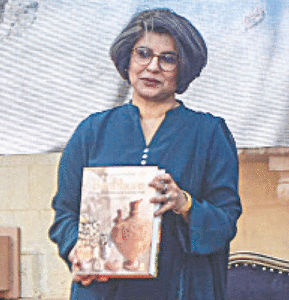KARACHI: A webinar on the topic ‘The Secession of East Pakistan: Why States Break Up’ was organised by the Pakistan Institute of International Affairs (PIIA) on Wednesday evening.
PIIA chairperson Dr Masuma Hasan read a paper on ‘The fall of Dhaka Dec 16, 1971: need for introspection’.
She said in the year 2021 it will be 50 years since Dhaka fell [on Dec 16, 1971]. After the civil war in East Pakistan, Pakistan disintegrated and Bangladesh became an independent state. In historical terms, enough time has elapsed for us to introspect and ask why Pakistan fell apart, most of all because most of the material about it is now available.
She said recently there have been attempts to correct the narratives from Pakistan’s point of view. The first question which comes to mind is about the fighting capability of Pakistan’s armed forces. That many commanders did not surrender even after the decision to surrender was announced. Some officers disappeared and we can only assume that they died fighting. It is interesting to note, however, what the enemy had to say about the situation.
Among others that Dr Hasan quoted in that regard was the chief of the Indian army at the time, Gen Sam Manekshaw, who paying tribute to Pakistani forces had said, “The Pakistani army fought very gallantly. But they had no chance. They were a thousand miles away from their base. I had got eight or nine months to make my preparations. I had a superiority of almost 50 to 1. They just had no chance but they fought very gallantly.”
Dr Hasan said another concern was about the casualties suffered by the Bengalis in East Pakistan.
PIIA chairperson says about 42,000 personnel, not 93,000, laid down arms in East Pakistan
“The insistence on three million dead has continued without any credible evidence. Also because there’s no reference in Bangladesh to the Awami League civil disobedience movement in which thousands of non-Bengalis were slaughtered by Mukti Bahini and the Sangram Parishad,” she said.
With respect to the number of military personnel who laid down their arms, she said there’s an insistence that 93,000 military personnel laid down their arms. “This is really not true because less than half of them were from the armed forces, about 42,000.”
She went on to talk about the Hamoodur Rahman Commission Report and concluding her paper commented, “Pakistan is not the only country in the world to have fallen apart. Even a superpower like the Soviet Union broke up … these events permanently blight the lives of the people of a generation in which they occur. That is why it is necessary to introspect.”
‘Russia is antithetical to sovereign states concept’
James Nixey, director of the Russia and Eurasia Programme and the Europe Programme at Chatham House London, gave a presentation on ‘Does Russia need revolution to change?’
His speech was in two parts. The first dealt with the collapse of the Soviet Union and why the current regime in Russia hasn’t collapsed and what might happen in the future.
He said the collapse of the USSR 30 years ago was the most significant geopolitical event of all of our lifetimes, certainly since the Second World War. It was the largest country in the world, covered a million square miles, had 300 million population, over 100 nationalities, thousands of nuclear weapons and its sphere of influence extended into central Europe. All the signs were there that this was a system that was destined to disintegrate and almost nobody foresaw it.
To back up his argument, he talked about the different internal and external factors including political, economic, cultural and social that caused it to happen.
In the latter half of his presentation, Mr Nixey said Putin’s Russia is antithetical to the concept of sovereign states.
To the title of his talk, he argued Russia doesn’t need a revolution but most of the evidence suggests that it does. Some of the states in the country haven’t done well.
Sonja Biserko, a former Yugoslavian diplomat, presented her thesis on ‘Collapse of Yugoslavia from today’s perspective’.
She said the Yugoslavian crisis is still very much a subject which engages many academicians, journalists and statesmen. The dissolution of the country brought to light many problems of contemporary times.
“Since the collapse of the Soviet Union we have been witnessing historical shifts of economic and political power and an uneasy process of adjustment between old and new emerging powers. Yugoslavian dissolution is going to be [with] us for a long time to come until historical truth is recognised.”
She said Yugoslavia was a complex community which tried to find the best solutions to the problems that it faced and faces today. The problems mainly centred on peaceful and harmonious coexistence of historical, cultural, civilisational, political, economic and religious difference. In the end it failed to find a sustainable solution.
Advocate Shahrukh Shahnawaz spoke on ‘States divided by foreign intervention’.
He said it’s a complex question. The First World War saw the collapse of great empires. The Second World War witnessed the death of colonialism. The states that emerged from the ashes of the empires confronted a series of problems and had to choose a side in a bipolar world. Most of them faced internal problems and those with weak political, civil and legal infrastructure were unable to overcome those challenges. Pakistan faced the same fate.
He then gave the examples of countries, such as North and South Korea and North and South Vietnam, which were affected by outside intervention.
Published in Dawn, December 17th, 2020













































Dear visitor, the comments section is undergoing an overhaul and will return soon.